Monthnotes: February 2024
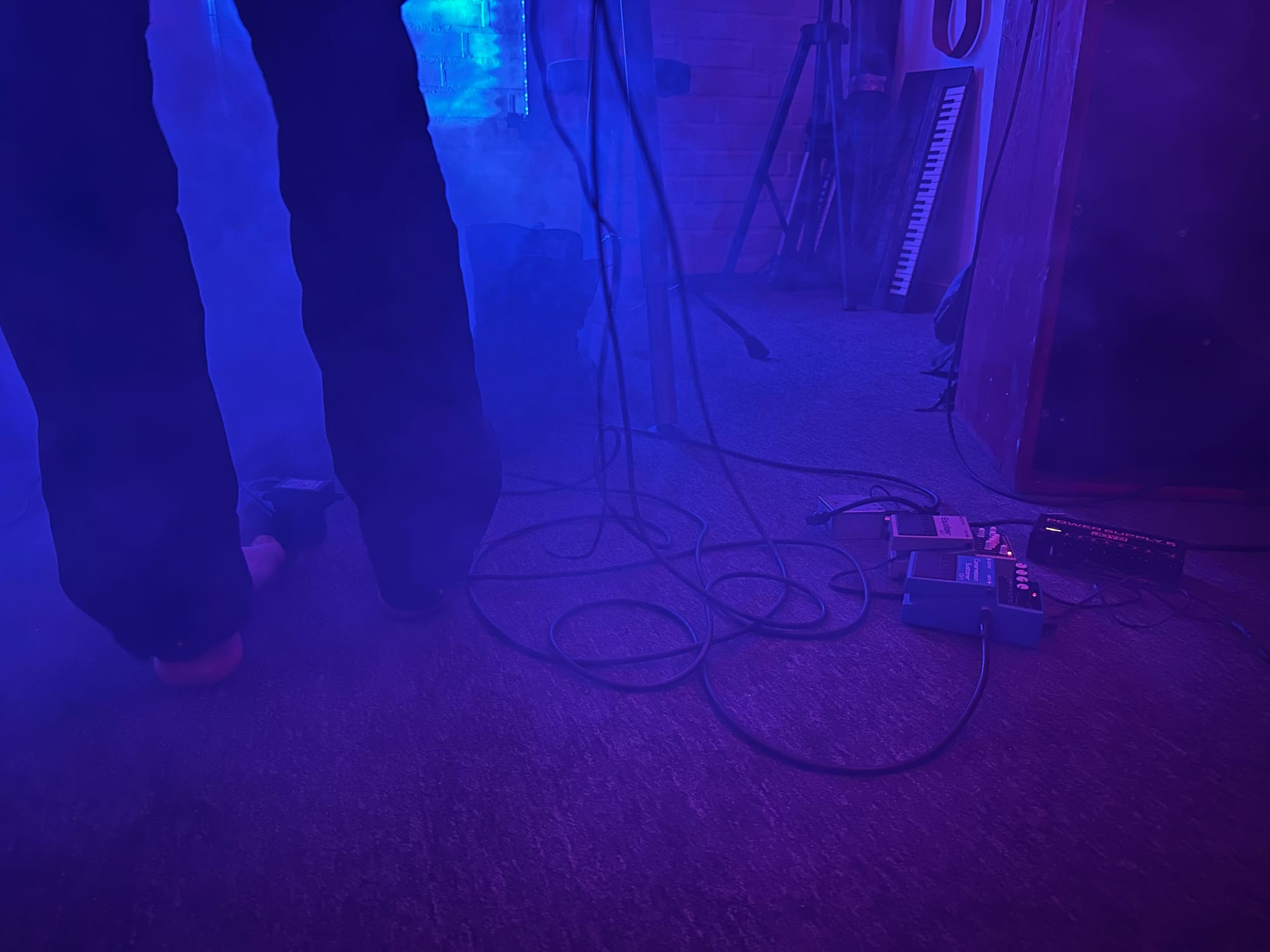
Every month or so, I share a quick digest of what I've been working on and reading. Here's the latest. More in the series here.
Over the last month I've been working with Jordan Wirfs-Brock and Jamie Perera on a manifesto for a thing we're calling "Open Sonifications".
It's an offshoot/successor of the work that Jordan, Miriam, and I have done in the past on informal "punk" sonifications, which developed when we were discussing the topic with Jamie. Jamie expressed that he couldn't identify with the term "punk" due to the racist tendencies that it encompassed in its early days as part of its associations with the Skinhead subculture.
The last thing we wanted was for our attempt to broaden the world of sonification to end up excluding people, so we got together and thought a bit harder about how we could define it in other ways. We quickly realised that we weren't trying to define a single new kind of sonification, but an approach where we're more open to things that have not traditionally been considered a part of sonification. So that gave us our name. Open Sonifications.
We've submitted a paper to a design conference in July where we'll hopefully get to talk about it in depth, and we're looking at other opportunities to describe this in more detail. But for now, here's our manifesto. What do you think?
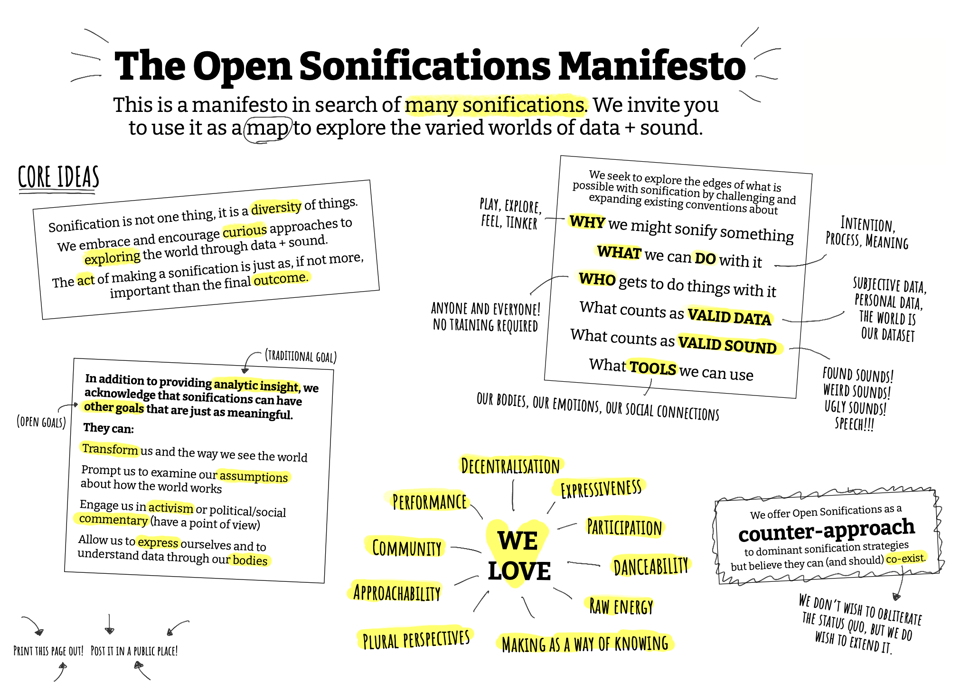
Late last year I applied for STPLN:Lab, a cultural business incubator in Malmö, run out of a building that once served as a slipway in the city's shipbuilding industry.

I was accepted, and since the start of the year I've been having a great time - getting to know people, attending workshops, and operating one day a week out of co-working space in the building. Not only is it lovely to get a change of scene once a week, but it's fantastic to be in an environment where everyone is doing weird creative stuff.
I've been using that day, each week, for skills-building - making the time to sit down and finally get to grips with Touchdesigner, a node-based animation that I was sure I'd already mentioned here, but a cursory search suggests I have not. It's pretty cool, check it out. Anyway, the goal is to be able to make generative visuals for my sonification work, which respond to the same data that the sound is driven by.
It's early days still, but I've been really impressed so far by the breadth of opportunities that STPLN offers, both to people in the lab programme and people outside of it.
As part of the STPLN:Lab programme, we all have to do introductory sessions where we talk about who were are and what we do, and I had a bit of a realisation in mine that I wanted to share because some of you might identify yourselves within it too.

You may or may not be familiar with the Jevons paradox. It states that efficiency gains generally increase the use of resources, rather than decrease them as is commonly expected. It turns out that if you lower the amount of a resource needed for a task, then the cost of that task decreases too. This cost decrease induces an increase in demand that exceeds the efficiency gains, and so you actually end up using more resources, rather than less.
I think this is happening in my brain.
Those of you who've been following me for a while might notice that I'm interested in productivity systems. I have various different systems that power different parts of my life - shared calendars, note-taking, inbox zero, to-dos, scheduling regular check-ins with myself, etc. I love these systems - they make me a lot more efficient. I can handle many more simultaneous projects than I would otherwise be able to. More plates spinning.
But spinning plates uses a set of resources - I'll refer to them here generically as "energy", though in reality it's a combination of inspiration and alertness and endurance and tiredness and time and interest and various other hand-wavey things.
One might expect that implementing systems that make me more efficient would give me more energy, because I'm using less of it on each task. But that's not what's happening. What's happening is that I'm taking on way more tasks than I was before, because my systems can handle them, and so the total energy use is higher than it's ever been. It's the Jevons Paradox in action.
I think this is why I feel really quite exhausted a lot of the time. (It could also be that I'm getting older, of course, but for now let's chalk it up to Jevons.) Doing more stuff is great for Duncan the Business, at least in the short term, but running out of energy is very bad for Duncan the Human.
So the obvious next question is: What are you gonna do about it, mister? The answer is that I want to try to find ways of taking down some of those spinning plates gently, without them smashing on the ground.
You can help with this! If we're collaborating on something and you fancy taking a break, then hit me up and say "let's take a break until further notice". I'll reply and say "aww but I really like working with you on this" and you can just reply with a single word: "Jevons!"
Otherwise, just hold me to account. When I write in the next newsletter that I'm launching five new unpaid projects, take me aside and whisper in my ear: "Jevons!"
Addendum a couple of weeks later: On the other hand, I'm quite liking the vibes of SOFA club....
The point of SOFA club is to start as many thingsas possibleas you have the ability, interest, and capacity to, with no regard or goal whatsoever for finishing those projects. The goal is acquiring many experiences. The side effects include entertainment and increased skill.
Conservation news site Mongabay published a great podcast last month - an interview with Hannah Ritchie of Our World in Data.

The interview is mostly about Ritchie's new book, Not the End of the World, which she describes as "radically hopeful". The podcast, which looks at some of the claims in the book, serves as a great demonstration of the huge gulf in worldview between the techno-solutionists, who believe that growth is the only thing that gets humankind out of the polycrisis, and the climate activists that believe that growth is what's causing that very crisis. It's well worth a listen.
I generally side with the activists, but I do like something that archetypal techno-solutionist Kevin Kelly said a while back in an interview with Noah Smith.
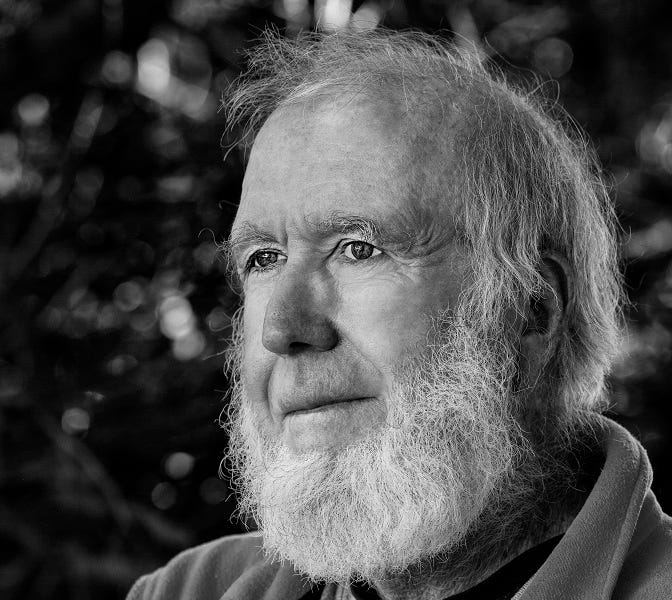
In English there is a curious and unhelpful conflation of the two meanings of the word “growth.” The most immediate meaning is to increase in size, or increase in girth, to gain in weight, to add numbers, to get bigger. In short, growth means “more.” More dollars, more people, more land, more stuff. More is fundamentally what biological, economic, and technological systems want to do: dandelions and parking lots tend to fill all available empty places. If that is all they did, we’d be well to worry. But there is another equally valid and common use of the word “growth" to mean develop, as in to mature, to ripen, to evolve. We talk about growing up, or our own personal growth. This kind of growth is not about added pounds, but about betterment. It is what we might call evolutionary or developmental, or type 2 growth. It’s about using the same ingredients in better ways. Standard economic growth aims to get consumers to drink more wine. Type 2 growth aims to get them to not drink more wine, but better wine.
It's that kind of type-2 growth that Bruce Mau was talking about when in 1998 he published his "Incomplete Manifesto for Growth", which Elevate member Sherri shared in our Slack the other day.
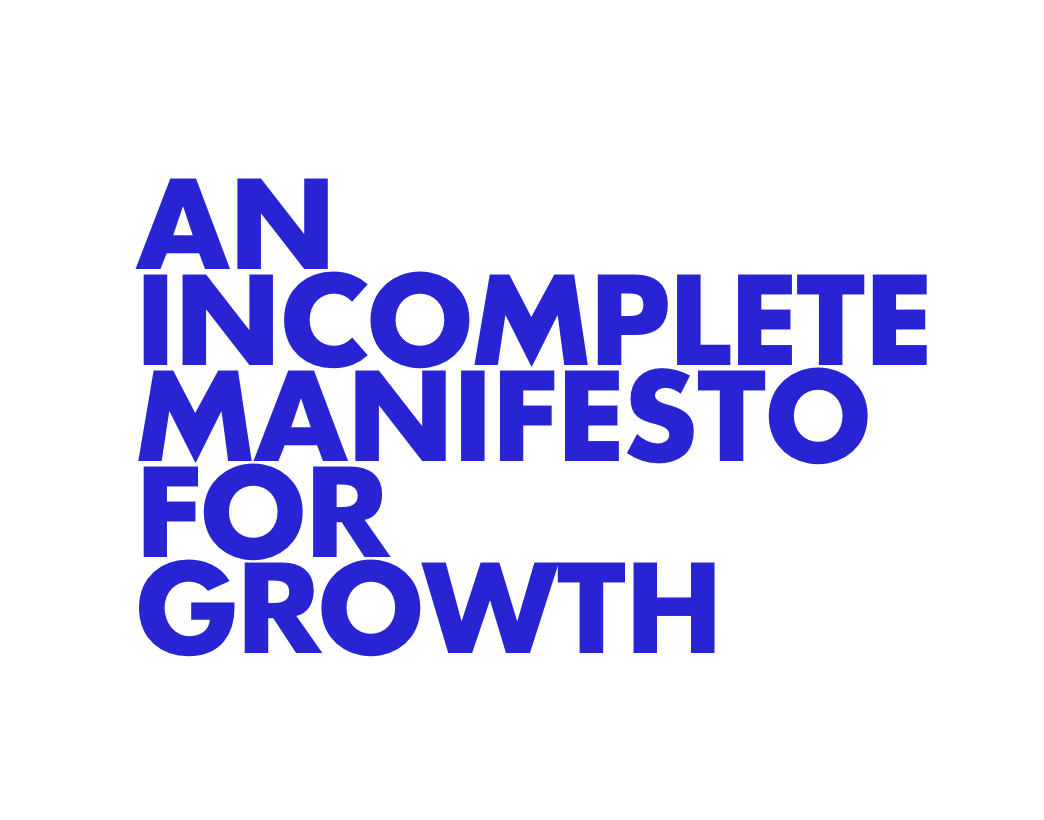
Considering it's more than 25 years old, it's still a fantastic read. Some of my favourite bits:
14. DON’T BE COOL. Cool is conservative fear dressed in black. Free yourself from limits of this sort.
24. AVOID SOFTWARE. The problem with software is that everyone has it.
26. DON’T ENTER AWARDS COMPETITIONS. Just don’t. It’s not good for you.
With my meteorologist hat on, it's fascinating to read about the arrival of AI in the world of weather forecasting.
Google has trained a model that matches the best of the traditional approaches to forecasting, but can deliver forecasts much faster.
In a paper published in Science, we introduce GraphCast, a state-of-the-art AI model able to make medium-range weather forecasts with unprecedented accuracy. GraphCast predicts weather conditions up to 10 days in advance more accurately and much faster than the industry gold-standard weather simulation system – the High Resolution Forecast, produced by the European Centre for Medium-Range Weather Forecasts.
GraphCast can also offer earlier warnings of extreme weather events. It can predict the tracks of cyclones with great accuracy further into the future, identifies atmospheric rivers associated with flood risk, and predicts the onset of extreme temperatures. This ability has the potential to save lives through greater preparedness.
For about three years, I've been sitting on a collection of remixes that we commissioned of tracks from Loud Numbers Season One. The idea was that we'd add to the list over time with some extra remixes of our own. But that has repeatedly not happened, so it's time to finally put the ones we do have out into the world. Introducing - Loud Numbers: Season One Remixes!
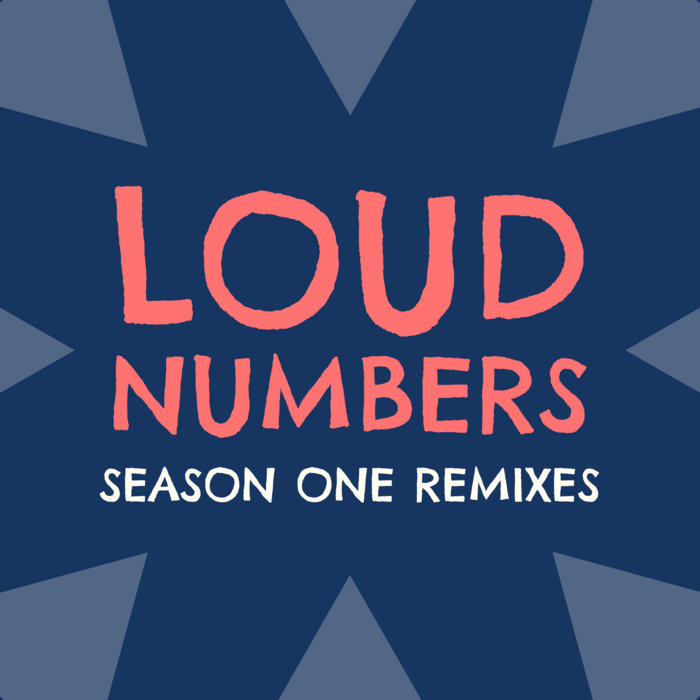
This community compilation includes some amazing folks - Jason Forrest, Wimperis, Saint Silva, Cotter Koopman and even an ambient remix of our "The Natural Lottery" techno track by yours truly.
You can grab the compilation on Bandcamp, or on your streaming service of choice. It just got released, so will trickle onto the various platforms over the course of the next week or so. Check back soon if it's not on your favourite yet.
With Possible, I've been doing some work on a campaign trying to get UK Premier League football clubs to stop taking private jet flights to domestic away games.

The practice is not popular with fans - 70% of people in our survey said that clubs should be taking the climate into account when choosing how they travel. It's not particularly time-saving either - on average, clubs only gain about an hour on each trip.
So far the campaign has been going pretty well - we've had coverage everywhere from BusinessGreen to the Mirror. And you can join too! Talk to your local football club, and use this link to ask the UK's top football leagues to implement a no-fly policy.
Finally, I'll leave you this month with a book recommendation. I just finished Our Shared Storm by Andrew Dana Hudson, which is as close to data visualization as fiction gets.

The book is structured as five mini-novelettes, which map to the five different scenarios (known as SSPs, or "shared socio-economic pathways") that the IPCC uses to consider possible climate futures that we may face. Each story describes what happens to a small collection of people at the 2054 COP climate conference, in Buenos Aires, but the conditions surrounding that conference are differ dramatically in each scenario.
It's a great way of not only thinking about what the future might look like, but putting several different options on the table and asking people to choose which one they want. Because that's what we're doing, every day, in the choices we make about what we eat, how we travel, and what we buy.
That's all from me this month. I'll be back in your inbox again in mid-March. Catch you then.
- Duncan
